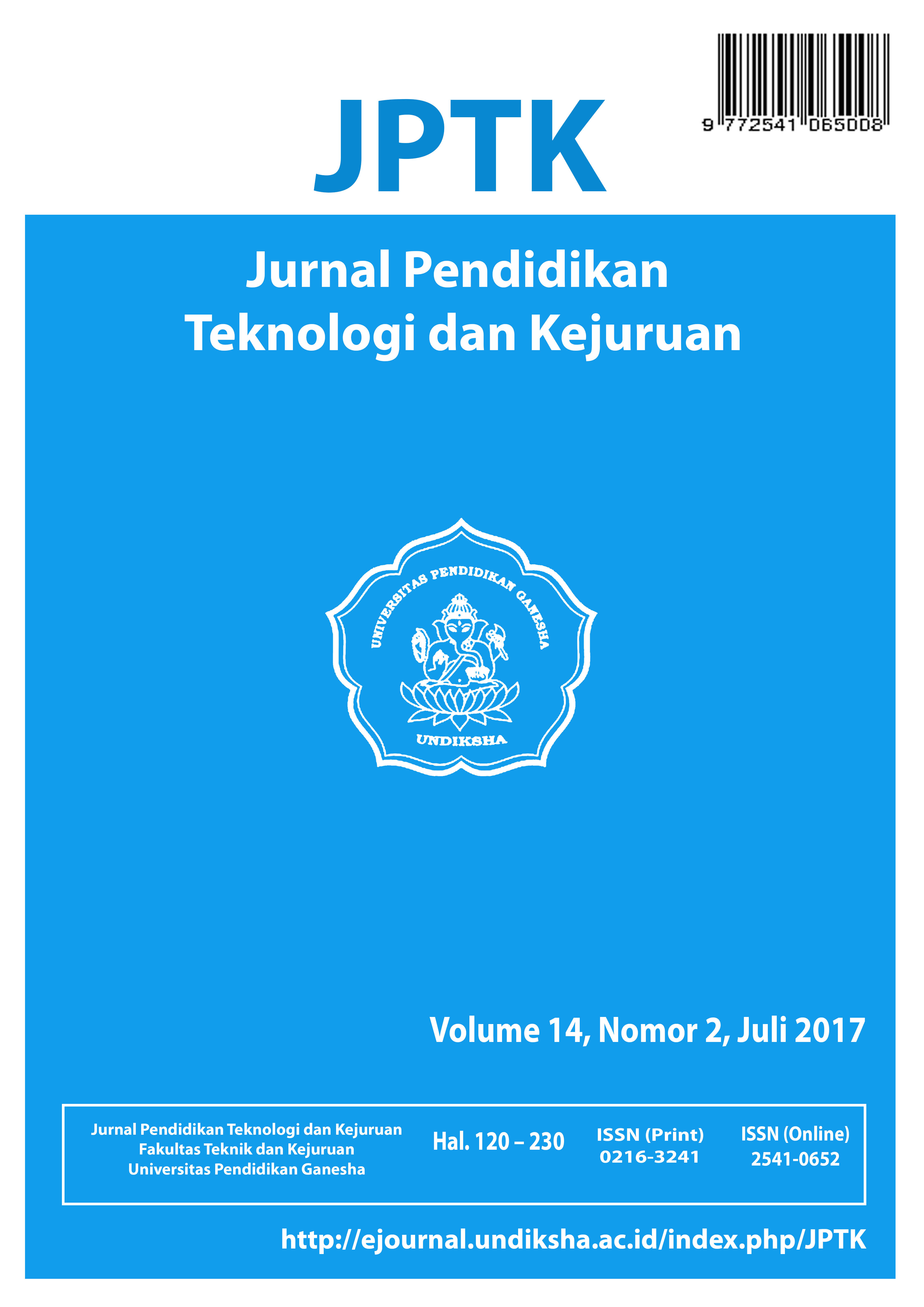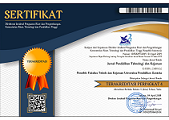PENGARUH E-LEARNING SCHOOLOGY TERHADAP HASIL BELAJAR SIMULASI DIGITAL DENGAN MODEL PEMBELAJARAN SAVI
DOI:
https://doi.org/10.23887/jptk-undiksha.v14i2.10387Abstract
Tujuan penelitian ini untuk mengetahui (1) pengaruh media pembelajaran E-learning Schoology terhadap hasil belajar siswa kelas X Administrasi Perkantoran SMK Negeri 1 Singaraja, (2) hasil belajar yang lebih tinggi antara kelompok yang menggunakan media pembelajaran E-learning Schoology dengan kelompok yang menggunakan media pembelejaran konvensional. Jenis penelitian ini adalah eksperimen semu dengan rancangan Post Test Only Control Group Design. Pengumpulan data dilakukan dengan metode tes pilihan ganda untuk mengatur ranah kognitif. Data hasil belajar di analisis melalui uji prasyarat yaitu uji normalitas dan homogenitas dengan hasil kedua kelompok berdistribusi normal dan homogen, dilanjutkan dengan uji hipotesis menggunakan uji-t. Hasil thitung 5,225 yang lebih besar dari ttabel 1,994437 menyatakan terdapat perbedaan yang signifikan dalam penggunaan media pembelajaran E-learning Schoology dan media pembelajaran konvensional. Kemudian dilihat dari rata-rata hasil belajar, rata-rata kelas eksperimen adalah 19,33 dan kelas control adalah 16,78 dapat disimpulkan bahwa media pembelajaran E-learning Schoology lebih baik dengan rata-rata hasil belajar yang lebih tinggi.
Downloads
Published
Issue
Section
License
Authors who publish with the JPTK agree to the following terms:- Authors retain copyright and grant the journal the right of first publication with the work simultaneously licensed under a Creative Commons Attribution License (CC BY-SA 4.0) that allows others to share the work with an acknowledgment of the work's authorship and initial publication in this journal
- Authors are able to enter into separate, additional contractual arrangements for the non-exclusive distribution of the journal's published version of the work (e.g., post it to an institutional repository or publish it in a book), with an acknowledgment of its initial publication in this journal.
- Authors are permitted and encouraged to post their work online (e.g., in institutional repositories or on their website) prior to and during the submission process, as it can lead to productive exchanges, as well as earlier and greater citation of published work. (See The Effect of Open Access)












